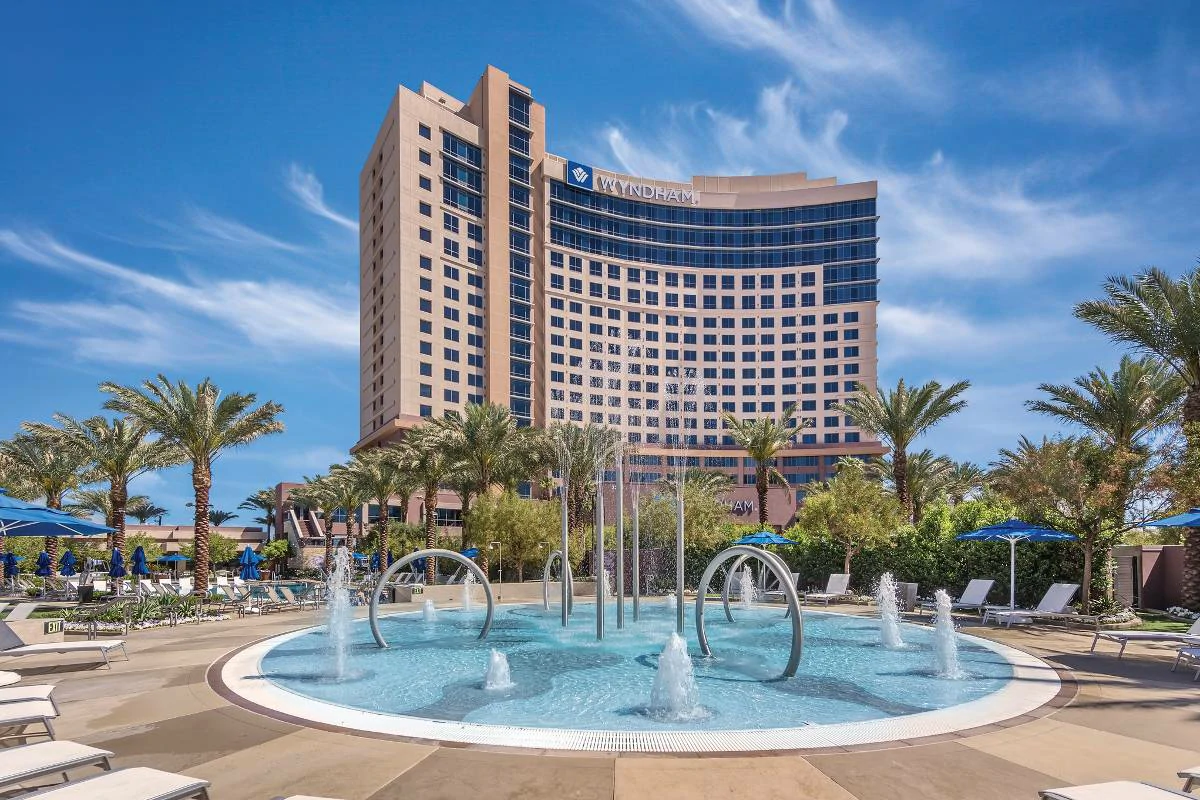What is the difference between 2-star, 3-star, 4-star, and 5-star hotels? Answer is – Hotel star ratings offer a general idea of the level of service, amenities, and overall luxury you can expect. A 2-star hotel provides basic accommodations, while a 3-star hotel offers more comfort and features. 4-star hotels are known for upscale quality and additional services, and 5-star hotels represent the pinnacle of luxury with exceptional service, amenities, and often lavish surroundings.
Summary
- Star ratings are not globally standardized but offer a general guideline.
- 2-star hotels are no-frills, offering the essentials.
- 3-star hotels provide mid-range comfort and amenities.
- 4-star hotels step up the quality, service, and range of facilities.
- 5-star hotels are synonymous with bespoke luxury and flawless attention to detail.
Hotel Star Ratings

You’re planning a well-deserved vacation, ready to unwind and experience a new destination. Choosing the perfect hotel is essential, but with so many options, where do you start? Hotel star ratings offer a valuable reference point, providing a glimpse into the quality, amenities, and overall experience you can expect.
What are hotel star ratings?
Hotel star ratings are a classification system designed to give travelers a standardized understanding of a hotel’s facilities and service levels.
While there’s no single global standard, most countries have rating organizations with established criteria. These ratings typically range from 1 star (basic) to 5 stars (exceptional luxury).
Why do star ratings matter?
Setting Expectations: Star ratings help you form realistic expectations about your stay. No surprises – a 5-star hotel promises a far more luxurious experience than a 2-star property.
Filtering Your Search: When browsing hotels, the star rating system lets you quickly narrow down options based on your desired comfort level and budget.
Value for Money: Star ratings can offer a sense of whether a hotel’s price aligns with the amenities and service you’ll receive.
Ensuring Basic Standards: Even lower-star hotels must meet specific standards for cleanliness, safety, and functionality.
What Does It Mean?

1. 1-Star Hotels
Think of 1-star hotels as your “no-frills” zone. These properties prioritize the essentials:
Basic accommodations: Rooms are typically small and simply furnished. You’ll have a bed, a private bathroom, and potentially a TV. Don’t expect plush carpets or fancy decor.
Limited amenities: On-site facilities might be limited to a vending machine or a simple breakfast area. You’re unlikely to find a pool, fitness center, or restaurant.
Daniel Fisher Expert Opinion
“1-star hotels are about function over form. If you’re exploring a city all day and just need a clean place to sleep, they can be a perfectly suitable choice.” – Daniel Fisher, Founder of a budget travel blog.
2. 2-Star Hotels
2-star hotels move beyond the bare essentials, offering a bit more comfort and convenience:
Clean, functional rooms: While still relatively simple, rooms in a 2-star hotel are generally a bit larger than those found in 1-star properties. You’ll likely have a TV, phone, and basic toiletries.
Potential for on-site dining: Many 2-star hotels have a small restaurant or café, offering breakfast or simple meals. This saves you the hassle of immediately venturing out to find food.
Often chain/brand hotels: A large proportion of 2-star hotels belong to well-known chains or brands (Econo Lodge, Days Inn, etc.). This means a certain level of consistency and predictability in terms of what you’ll get.
Emily Peterson Expert Opinion
“2-star hotels are a solid choice when you’re looking for a clean, comfortable stay without breaking the bank. They might not have all the bells and whistles, but they get the job done.” – Emily Peterson, Senior Editor at a travel review website.
3. 3-Star Hotels

3-star hotels represent a noticeable increase in comfort, amenities, and overall experience. Here’s what you can expect:
Increased comfort and style: Rooms tend to be more spacious and stylishly furnished compared to lower-star properties. Expect comfortable beds, better quality linens, and a more polished décor.
On-site restaurant(s): Most 3-star hotels feature at least one full-service restaurant, offering a wider selection of meals beyond basic breakfast. This adds flexibility and convenience to your stay.
Fitness facilities, pools: Staying fit on the road is easier with access to an on-site gym (even a modest one) and often a pool area for relaxation.
Business services: Many 3-star hotels cater to business travelers by providing meeting spaces, business centers with computers and printers, and potentially even secretarial services.
James Martin Expert Opinion
“3-star hotels are the sweet spot for many travelers. You step up in comfort without a major jump in price. They offer a great balance of value and amenities.” – James Martin, Travel blogger and hotel reviewer.
4. 4-Star Hotels
Entering a 4-star hotel signifies a move into upscale territory. Expect these hallmarks:
Upscale experience: From the moment you step into the lobby, 4-star hotels exude a sense of refinement and quality. The décor is stylish, and the overall ambiance is welcoming and sophisticated.
Larger rooms, higher quality furnishings: Rooms are noticeably more spacious and well-appointed than their lower-star counterparts. Expect plush beds, luxurious linens, and tasteful furnishings. Bathrooms often feature upgraded amenities and more generous counter space.
Concierge services: A dedicated concierge is there to assist with anything from restaurant reservations and booking tours to securing those hard-to-get tickets. They add a level of personalized service.
Multiple dining options, bars: 4-star hotels frequently offer multiple restaurants, perhaps specializing in different cuisines, along with stylish bars or lounges for socializing.
Spa and wellness focus: Unwind in a well-equipped spa with a range of treatments or enjoy a larger, more elaborate fitness center. Wellness becomes an integral part of the experience.
Lisa Nguyen Expert Opinion
“4-star hotels are where you start to feel pampered. From the beautifully designed spaces to the personalized service, they’re designed to make your stay feel special.” – Lisa Nguyen, Luxury travel consultant
5. 5-Star Hotels

5-star hotels represent the epitome of hospitality – where impeccable service, exquisite surroundings, and extraordinary attention to detail converge. Here’s what sets them apart:
The height of luxury: Think grand lobbies, lavish décor, and a sense of opulence throughout the property. Everything from the materials used to the smallest design details exude quality and refinement.
Spacious, opulent rooms: 5-star hotel rooms are more akin to luxurious suites. Expect generous spaces, high-end furnishings, plush bedding with the finest linens, and often breathtaking views. Bathrooms become spa-like sanctuaries with soaking tubs, designer toiletries, and ample space.
Personalized service (butlers, etc.): Anticipating your every need is the hallmark of 5-star service. From dedicated butlers attending to your requests to personalized touches throughout your stay, the staff is there to make your experience seamless.
World-class restaurants: 5-star hotels often boast restaurants helmed by renowned chefs, offering gourmet cuisine and impeccable wine lists. Dining becomes an event in itself.
Extensive facilities (golf courses, etc.): The amenities go far beyond the standard pool and gym. From championship golf courses and expansive spas to private cinemas and exclusive beach clubs, the facilities are top-tier and often cater to a wide range of interests.
Focus on unique experiences: 5-star hotels strive to create unforgettable moments. This might include curated private tours, access to special events, or personalized activities crafted around your passions.
Roberto Sanchez Expert Opinion
“5-star hotels are about more than just a place to stay – they’re about creating an extraordinary experience that leaves a lasting impression. It’s the pinnacle of hospitality.” – Roberto Sanchez, Hotel industry veteran and consultant with 30+ years experience.
2. How Star Ratings Are Determined

1. Official rating bodies vs. online ratings
Official Rating Bodies: Many countries have official tourism boards or independent organizations that establish and apply hotel star rating criteria. These bodies often conduct on-site inspections and adhere to strict standards. Examples include:
- Forbes Travel Guide (United States)
- AAA Diamond Ratings (United States & Canada)
- The AA (Automobile Association) (United Kingdom)
- Australia’s Star Rating System
Online Ratings: Travel websites like TripAdvisor, Booking.com, and Expedia feature user-generated ratings and reviews. These reflect guest experiences and can offer valuable insight but are inherently more subjective.
2. Criteria considered
While specific criteria vary between rating bodies, here are common areas of evaluation:
Facilities:
- Room size and amenities (quality of furnishings, bathroom fixtures, technology)
- On-site restaurants, bars, lounges
- Pools, fitness centers, spas
- Business facilities and services
- Accessibility features
Service:
- Front desk efficiency and hospitality
- Attentiveness of staff
- Concierge availability
- Housekeeping standards
Cleanliness: Maintenance of rooms, public spaces, and facilities
Location: Proximity to attractions, transportation, etc.
Overall ambiance & design: The general aesthetic and atmosphere of the property
Jennifer Stevens Expert Opinion
“Official star ratings provide a baseline of what to expect, but online reviews tell the real story of a hotel’s guest experience. Using both in tandem gives you the most well-rounded picture.” – Jennifer Stevens, Travel editor with 10+ years in the industry.
Choosing the Right Star Rating for Your Needs

1. Budget Considerations
The Cost Factor: Unsurprisingly, there’s a general correlation between star ratings and price. Higher star levels usually mean higher nightly rates.
Value for Money: Is it worth splurging on a 5-star experience, or does a solid 3-star or 4-star property offer everything you need at a more comfortable price point?
Hidden Perks: Sometimes lower-star hotels offer complimentary breakfast or have packages that bundle in other amenities, potentially offsetting the initial room rate difference.
2. Purpose of Your Trip (Business vs. Leisure)
Business Focus: If your trip is primarily work-related, factors like a reliable business center, high-speed internet, and proximity to conference venues might outweigh the need for resort-style pools and multiple restaurants.
Leisure Getaway: When relaxation is the priority, the amenities and ambiance contribute significantly to your experience. A balcony with stunning views, a luxurious spa, or top-notch dining become more important.
The Hybrid Trip: Increasingly, travelers blend business and leisure. A 4-star hotel often strikes a good balance, providing business necessities along with amenities for downtime enjoyment.
3. Desired Level of Comfort and Service
How Much Pampering? Do you crave attentive service and luxurious surroundings, or are you perfectly happy with a clean, functional, and comfortable base for your adventures?
Special Needs: If traveling with children, a hotel with family-friendly amenities becomes important. Those with accessibility requirements need to ensure the hotel meets their needs.
The “X” Factor: Sometimes it’s about a specific feature – a rooftop pool with amazing city views, a renowned spa, or a hotel known for its culinary excellence. These can justify choosing a higher-star property.
Mark Thompson Expert Opinion
“Don’t get fixated on the star rating alone. Consider what truly matters to you on this specific trip and choose the hotel that best delivers on those priorities.” – Mark Thompson, Travel blogger and budget travel expert
Conclusion
Hotel star ratings offer a valuable starting point when choosing the right accommodation for your travels.
While not flawless, they provide a general framework of the amenities, service, and overall experience you can expect. Here’s the key takeaway:
Star ratings are a tool, not a rule: Combine star ratings with online reviews, consideration of your budget, trip purpose, and personal priorities to make an informed decision.
FAQs
Are star ratings standardized worldwide?
Unfortunately, no. While there are similarities, specific criteria can vary between countries and rating organizations.
Can I trust online hotel ratings?
Online reviews offer a real-world perspective from fellow travelers. Use them in conjunction with official star ratings for a balanced view. Look for a larger number of reviews to get a more reliable picture.
Does a higher star rating always mean a better hotel?
Not necessarily. Factors like location, unique ambiance, and individual guest preferences play a significant role.
Is it worth paying more for a higher-rated hotel?
It depends on your priorities. If luxury and top-notch service are essential to your enjoyment, it might be worth the investment. If you simply need a clean and comfortable base of operations, a lower-star hotel could be more than sufficient.







